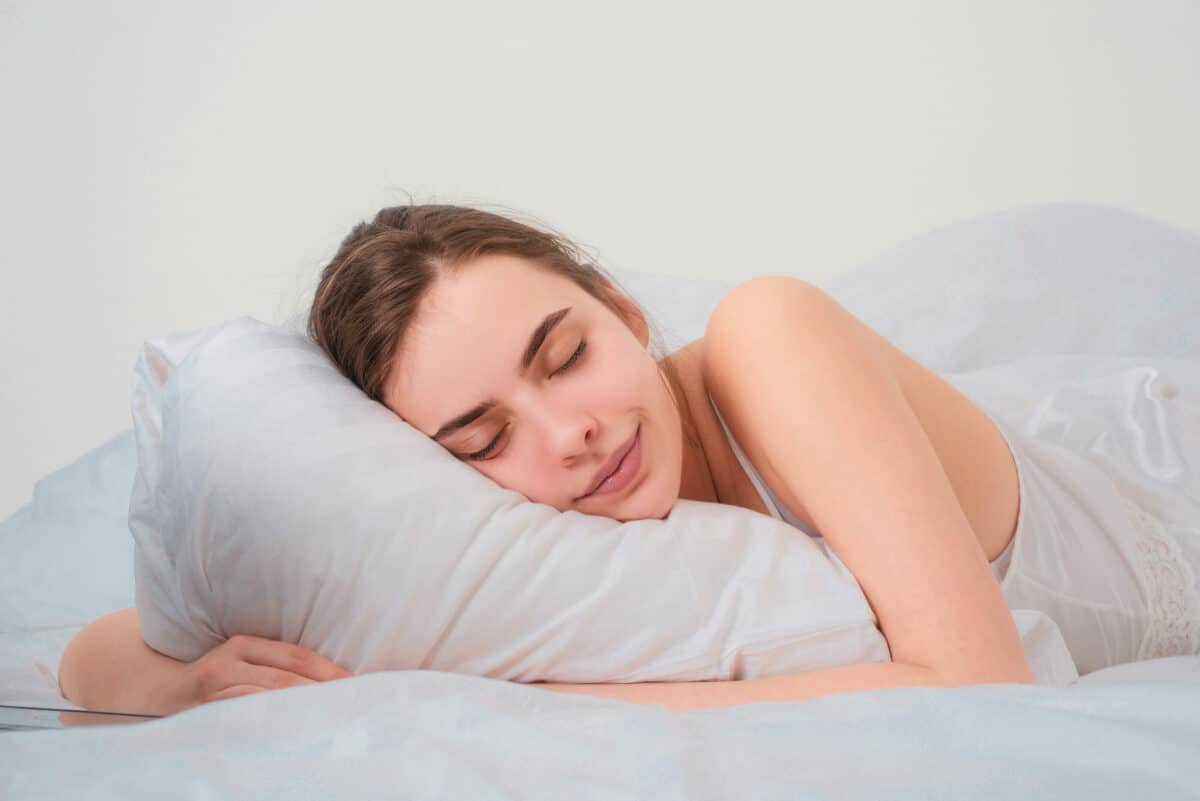- Strategies for Coping with Single-Sided Deafness - July 15, 2024
- How Summer Humidity Affects Hearing Aid Performance - July 3, 2024
- The Power of Body Language: Enhancing Communication for Those with Hearing Loss - June 28, 2024
Have you ever wondered if you can hear while you sleep? It’s a common question that often arises when discussing the mysteries of sleep. As we drift into the realm of dreams and our consciousness fades away, what happens to our ability to perceive sounds? Today, we’ll delve into the intriguing topic of sleep sound perception and shed light on whether our auditory senses remain active while we slumber.
The Science of Sleep
Before we explore the topic of hearing during sleep, let’s first understand the basics of sleep itself. Sleep is a complex physiological process that plays a crucial role in our overall health and well-being. It consists of several stages, including non-rapid eye movement (NREM) and rapid eye movement (REM) sleep.
During NREM sleep, which makes up the majority of our sleep cycle, our brain activity slows down, and our body enters a deep relaxation state. This is the phase where we experience restorative benefits and important bodily functions, such as tissue repair and hormone regulation, take place.
On the other hand, REM sleep is characterized by rapid eye movements and vivid dreaming. It is during this stage that our brain activity increases, similar to when we are awake. Both NREM and REM sleep contribute to the overall quality of our sleep.
Perception of Sounds during Sleep
Now, let’s address the burning question: Can you hear while sleeping? The answer is both fascinating and nuanced. While the brain’s responsiveness to sounds decreases during NREM sleep, it does not completely shut off. In fact, certain sounds can still reach our auditory system and be processed to some extent.
Studies have shown that during NREM sleep, the brain’s response to sounds is more selective and less likely to wake us up compared to when we are awake or in REM sleep. Our brain tends to filter out irrelevant sounds and respond only to significant or meaningful stimuli, such as a loud alarm or a baby crying. This filtering mechanism is known as the “cocktail party effect,” which allows us to sleep through minor noises but wake up to important sounds.
On the other hand, during REM sleep, which is associated with vivid dreams, our auditory system becomes more active. Research suggests that the brain continues to process sounds during this stage, and certain sounds may even influence the content of our dreams. However, these dream experiences are highly subjective and can vary greatly among individuals.
Impact of Environmental Sounds on Sleep
While our ability to perceive sounds during sleep is fascinating, it’s important to consider the impact of environmental noises on the quality of our rest. External sounds can disrupt our sleep, leading to awakenings, fragmented sleep patterns, and even sleep disorders like insomnia.
Common environmental noises, such as traffic, snoring partners, or neighborhood disturbances, can activate our brains to some degree, causing micro-arousals that disrupt our sleep cycles. Additionally, sudden or loud sounds may trigger a more significant response, potentially leading to full awakening.
To ensure optimal sleep quality, it is advisable to create a peaceful sleep environment. Consider using earplugs or white noise machines to mask external sounds that may interfere with your sleep. These strategies can be particularly helpful for individuals who are more sensitive to noises or live in urban areas with high levels of ambient sounds.
Sleep Disorders and Sound Perception
In some cases, the perception of sounds during sleep can be associated with specific sleep disorders. One such example is sleep-related disorders like sleepwalking or night terrors, where individuals may react to sounds or experience abnormal behaviors during sleep.
Another condition related to sound perception during sleep is sleep-related misophonia, which is characterized by intense emotional and physiological reactions to specific sounds. Individuals with misophonia may experience heightened sensitivity to certain noises, leading to increased arousal or even feelings of anger or disgust.
It’s worth noting that these disorders are relatively rare and not experienced by the general population. If you suspect you have a sleep disorder or are experiencing difficulties related to sound perception during sleep, it is recommended to consult with a sleep specialist or healthcare professional for an accurate diagnosis and appropriate treatment options.
Final Thoughts
While our ability to hear sounds during sleep is not completely turned off, it does undergo changes. Understanding the science behind sleep sound perception can help us create a conducive sleep environment and promote better sleep quality. So, the next time you wonder if you can hear while sleeping, remember that our auditory system continues to function, albeit with some fascinating adaptations, as we journey through the realms of slumber.
Please contact us if you have any questions or would like to schedule your next hearing check up. Our team of hearing professionals are ready to assist with all your hearing related needs.

